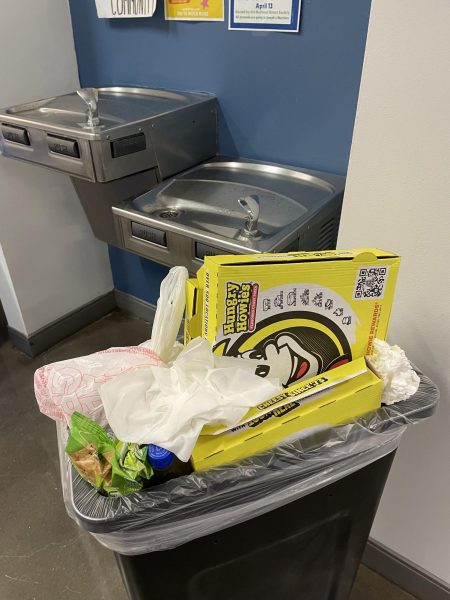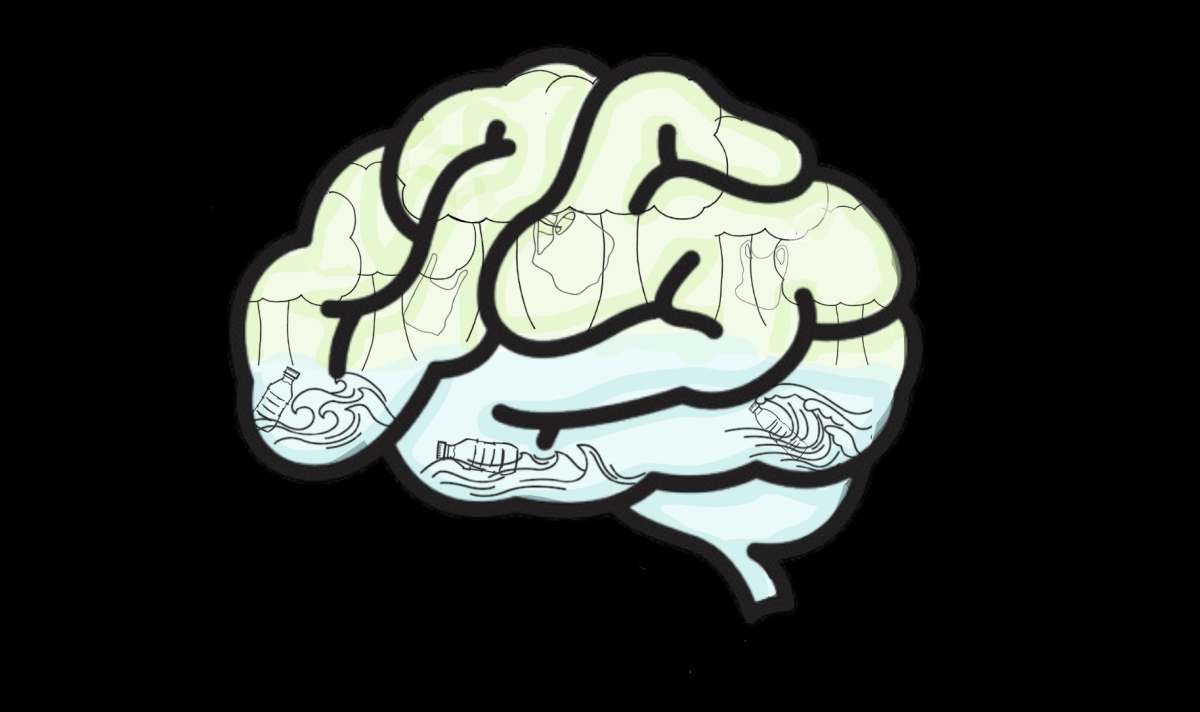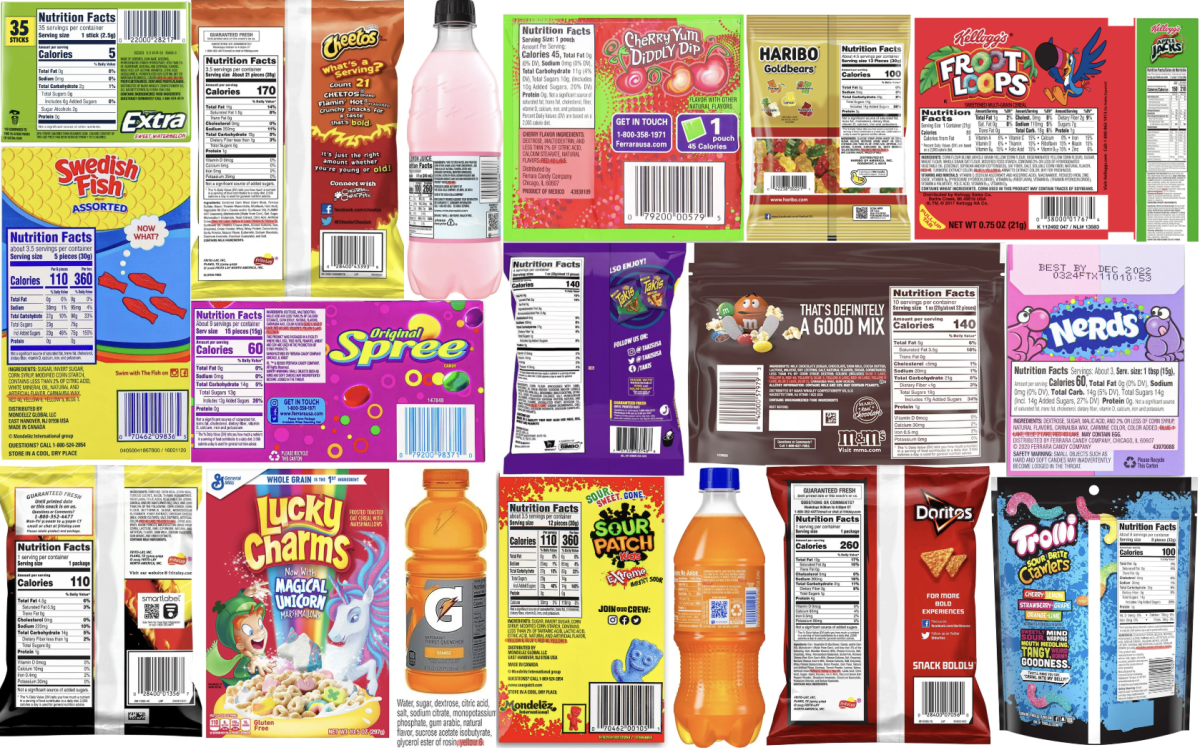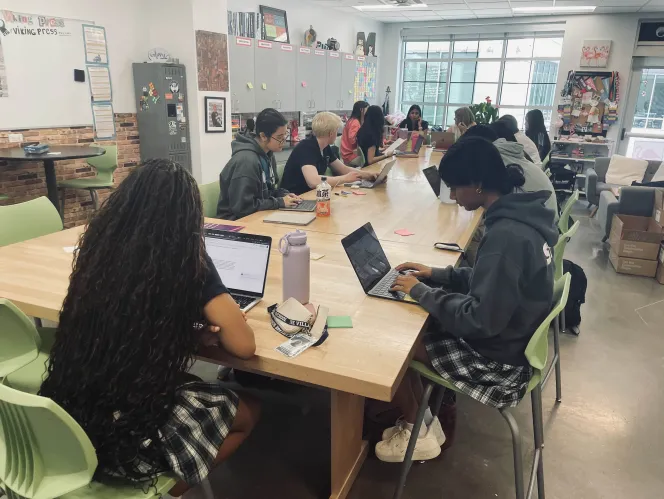
Imagine a student from The Village School eating a pizza, the box carelessly being thrown away once they’re done. Many students buy food from the campus store because it is faster and easier. The same convenience over sustainability mentality can also be seen with fast fashion and plastic water bottles because they are simply easier to get a hold of. According to the UN Environmental Program, the world produces over 400 million tons of plastic waste per year with the United States being responsible for over 10% of that total, more than any other country. While these numbers are shocking, the reality is that we are trading everyday convenience for a healthy planet. The United State’s high generation of plastic waste per capita is largely due to a culture of convenience and instant gratification. The convenience-centered culture is greatly contributing to plastic waste and environmental degradation.
When it comes to buying groceries, beauty products, and clothes, disposable and low-quality products dominate daily life. This same cultural normalization is seen in the excessive use of packaging for takeout orders. Takeout orders are often wrapped in not one, but two bags. Additionally, groceries are commonly placed in single-use plastic bags in contrast to reusable ones. Even though some stores opt for paper bags, the waste is still significantly more than that of reusable bags. Convenience is a key factor in our everyday lives, and, whether we realize it or not, it comes at the cost of our environment. People use single-use products simply because it is easier to get a new bag every time you go grocery shopping rather than remembering to bring your own. Over the past few years, there has been a rise in sustainability on social media from greener foods to criticism of large fast fashion brands, however, the allure of easier and faster is still more appealing and comes at the cost of the environment. This demonstrates how convenience often overshadows sustainability.
But convenience doesn’t stop at packaging, instant gratification has also become a major player in waste production. We live in a world where once a problem arises, the solution has to be readily available within fingertip reach. When you’re feeling tired after a long day of school, who wants to cook an entire meal and do the dishes afterward? That’s where single-use plastics come into play. People get what they want immediately, and can simply throw it away once they’re done. No energy is required. “When I’m tired I’ll often make myself pre-packaged instant ramen,” said freshman Luci Huynh, “It’s just easier.” Is not washing dishes once worth sacrificing the health of our planet? Instant gratification is a want to prioritize instant rewards over long-term progress and benefits. Recycling one plastic water bottle isn’t going to save the world and once people realize that small actions have no immediate effect, they get discouraged resulting in a loss of motivation. Harmful effects of plastic waste are often estimated to be years away leading people to think that nothing they do now will make any difference. The need for instant gratification in today’s society is a leading cause of plastic waste production.
“We did get discouraged often because we had quite ambitious goals, and they weren’t progressing as fast as we would have liked.” Lina Aguirre, a student sustainability club leader said, “Oftentimes, when we would try to start large projects that involved student help, they didn’t really care and acted as if it didn’t affect them which caused many delays.”
Another part of human psychology that should be considered is the “out of sight, out of mind mentality”. Once the single-use item is no longer useful and is thrown away it completely disappears from your mind. This means that there isn’t any real connection between the waste and the human brain. This encourages a sense of detachment from the issue of waste production because it doesn’t seem as apparent in everyday life. This prevents people from seeing the long-term effects of their actions and allows them to downplay this issue. Additionally, this allows people to avoid cognitive dissonance. This is a type of mental discomfort caused by having two conflicting beliefs like being sustainable but wanting to be lazy. We tend to want to avoid uncomfortable situations, so pretending that plastic waste isn’t an issue allows people to, theoretically, stay blissfully unaware. Pretending single-use items aren’t contributing to plastic waste, but it is enabling plastic waste production to grow every year.
This excessive plastic waste in the United States and around the world does not come without consequences. According to the WWF, by 2050 there is expected to be more plastic in the oceans than fish. While the scale of plastic waste is alarming and may seem impossible to combat, there are many ways that we can help reduce these effects. The first challenge we have to overcome is these psychological barriers stopping us from being sustainable. You must act consciously every day in order to be able to make a difference. As social media has started to make slow steps towards encouraging sustainable behaviour, it is abundantly clear that these platforms have the ability to make significant changes. However, making a real difference will take more than just awareness, it requires a complete mental shift where we put the planet first.
Resources
https://www.wwf.org.uk/myfootprint/challenges/will-there-be-more-plastic-fish-sea








